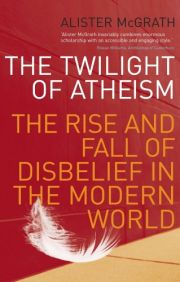

FAITH ---- IN ATHEISM OR THEISM
Contrary to the claims of atheism's loyalists --- atheism takes faith.
Questions such as---how did intelligent life develop? how did life originate? does life have meaning? why something rather than nothing? are good and evil -- realities?
We don't know the answers to any of these questions for certain. Both a Christian's and an atheist's answers stem from FAITH.
It's fine for the Christian or the Atheist to be satisfied with their respective answers--but they should not say faith has no part in reaching them.
Some problems --atheists face:
1. Is there a need for meaning in life? If so, how do we find it?
The existentialists, like Sartre searched for meaning in a world without God and came up --- empty handed. Everything was just so much meaningless stuff.
There is something in humans that makes us seek meaning -- especially when life does not go well. Victor Frankl, a survivor from a Nazi concentration camp, authored the book, "The Unheard Cry for Meaning". In it he says: "The will to meaning is really a specific need not reducible to other needs, and is in a greater or smaller degree present in all human beings."
Tolstoy said "I know everything that science so much wants me to know; but this path will not lead me to an answer to the question of the meaning of my life." And, if he lived in the year 2006, I am convinced this quote would remain unchanged. Science does not provide meaning to personal life.
If you are content with this----then atheism may be right for you.
2. History would have been so much better without religion, without the belief in God.
From the killing fields of Cambodia to the death camps of the Nazis, we can see that godless ideologies do not result automatically in a happy and peaceful world.
Can most people continue to live "good" lives, lives of honesty, fairness, compassion and wisdom without some spiritual path or religion? It would seem that our individual lives and the world would head downhill.
I am reading a book on the Roman Empire, especially, though not entirely, about the rule of Augustus. When Augustus assumed leadership, he felt to keep the empire intact, strong and at peace -- he needed to restore faith in the gods, and to stress the need for virtue if Roman were to be happy and fulfilled.
Separation of church and state, IMO, is desirable. I don't want specific religions taught in the schools, nor the monuments to the 10 Commandments outside/inside public buildings----but I do think schools should stress some basic virtues, the qualities of a human life.
3. Are the problem of suffering and evil solved by the Atheistic faith?
How can a merciful, just and all-powerful God permit suffering and evil?
This has been a key question throughout history. When things turn ugly---some people blame God. They try to make sense out of their personal and their nation's disasters.
Would eliminating God make it easier to explain suffering and evil?
Picture a world without any belief in God whatsoever. how would we go about understanding evil and suffering? Would it be simpler? More satisfying?
Do we merely say---there is no explanation, no meaning, no consolation.
4. What happens to the words -- wrong, right, justice, injustice, good, evil without some belief in an Absolute?
We have no yardstick. Do we rely on anyone and everyone's opinion or tastes? The United Nations' declares a war --- unjust, ruthless, and humane.
So what? Our courts hand down verdicts -- based on what foundation? A married couple goes into counseling to avoid a divorce. How can any mediation take place---if there are not some fundamentals?
5. One of the singular features of humans felt by all to some degree is a spiritual longing, a reaching out to something deep within us, and yet beyond us.
We could just write off this urge, this need to ---wishful thinking. But isn't that stretching the atheists' faith rather thin?
This argument means a great deal to me. The fact that I have a hunger or thirst for a spiritual reality--for me -- indicates that there is a reality to satisfy it.
McLaren in his book mentioned earlier, quotes a short passage from Richard Selzer's book, "Wittenburg Door":
"My entire life has been one long search for faith. I haven't found it. I do not believe in God. Having said that, ...I want you to know that I love the idea of God. I love piety. Without it, you live your life unmoored, in a state of isolation. You are a tiny speck in a vast universe. I'm jealous, frankly. I feel as though I've missed out on the greatest thing that can happen to a person --- faith in God. It must be wonderful."
As Brian McLaren says: "Atheism is a faith option open to you, but there are reasons to at least consider other options."
* Much of this essay is based on Brian McLaren's recent book, "Finding Faith".

